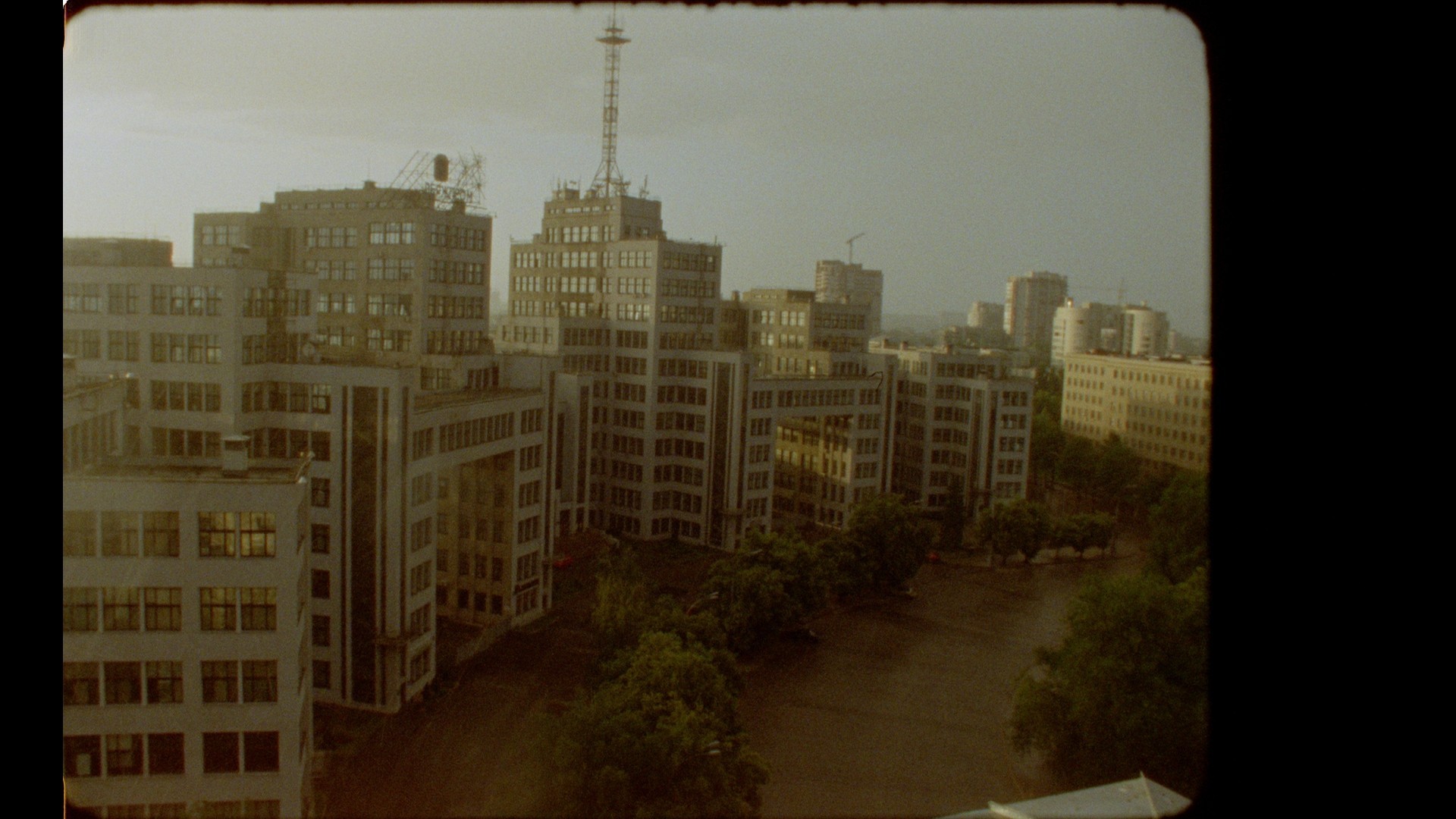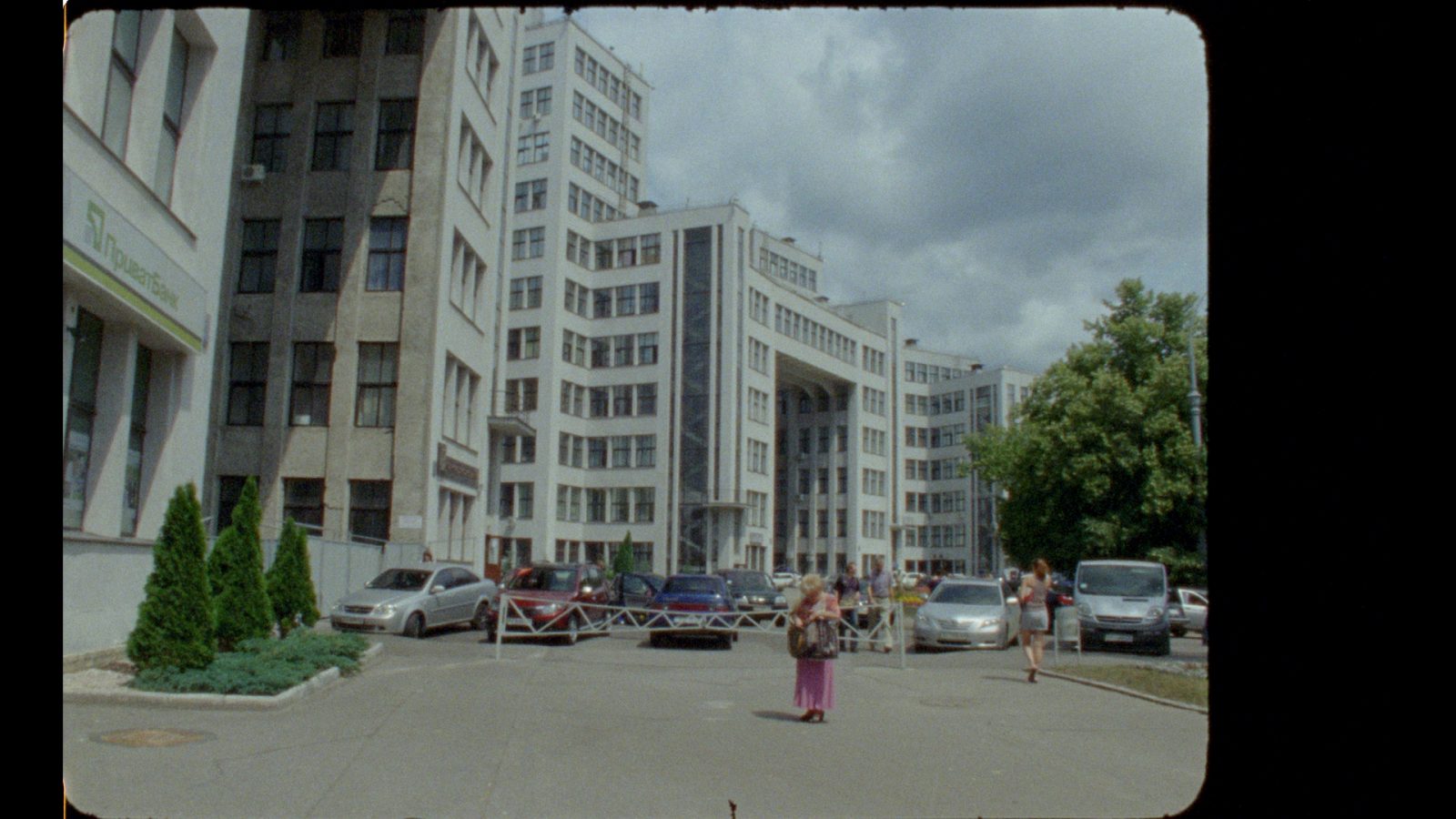Tatjana Kononenko, Matilda Mester
Germany, 93′, 2019
Presented by Tatjana Kononenko and Monika Lipšic
In Kharkiv in eastern Ukraine stands Derzhprom, the House of State Industry. Built between 1925 and 1928 in the style of constructivism, it intended to embody the idea of communism through its colossal architecture. Although it is one of the biggest realized constructivist buildings and a poster child for the 1920s avant-garde movement, the film, created in 2019, depicts Derzhprom as a time machine, an immovable object with its set system in an otherwise dynamic geopolitical situation. In the context of today’s war, when Kharkiv is one of the most devastated cities in Ukraine, the film speaks yet another language, thus becoming the document of a time of peace in people’s lives in Eastern Europe, a palimpsest in many ways the reading of which will be accompanied by one of the film directors, Tatjana Kononenko. The film premiere took place during the pandemic, so this will be the first and special screening of the director together with the audience.
Tatjana Kononenko was born in Kirovograd, Ukraine, in 1980. She currently lives and works between Berlin and Nicosia. Until 2019 she was enrolled in the film directing program at the German National Film Academy (DFFB) and a fellow of the Elsa Neumann Program of the Berlin Senate for especially promising artists. Tatjana Kononenko has been working with video and photography in projects often dealing with issues of memory and history. Budinok is her first full-length film. Currently, Kononenko is preparing her first feature film, Tales in the Darkness. It is a personal portrait of four generations of women dealing with traces of the traumatic events of 1933 in the present. Tales in the Darkness just received the Wim Wenders Development Prize.
Matilda Mester was born in Copenhagen, Denmark, in 1980. In 2008 she moved to Berlin to study at the German National Film Academy DFFB. Here, she made her first feature film Limbo (directed by Anna Sofie Hartmann) which premiered at the San Sebastian International Film Festival and was nominated for the Discovery Award at the European Film Awards. Matilda Mester’s work is characterized by an experimental and artistic approach, while Budinok is her first co-directed film. She just had a premiere at CPH:DOX with her first full-length film, Nakskov 1:50.

